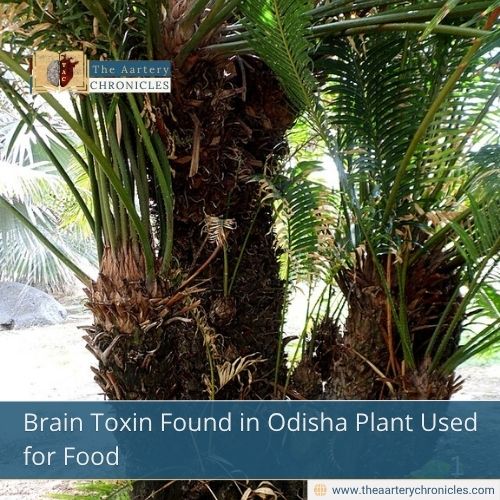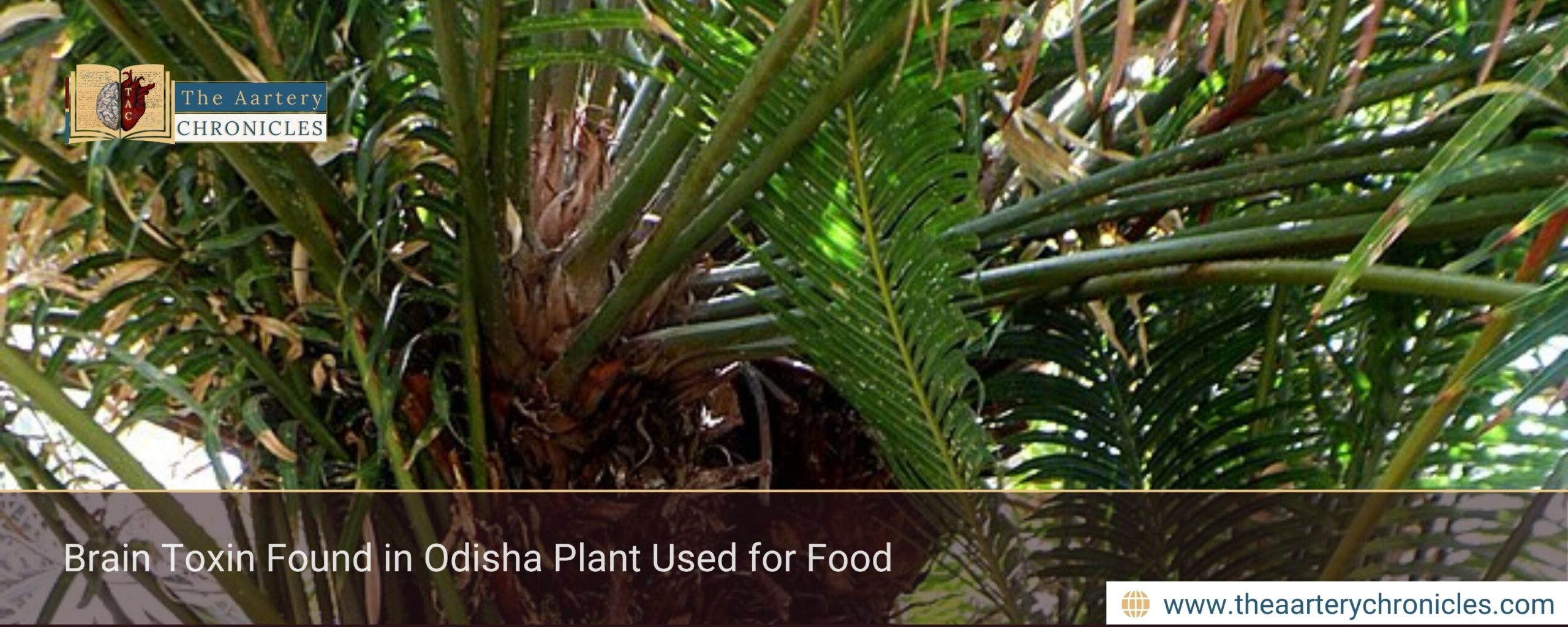

Brain Toxin Found in Odisha Plant Used for Food
Medical researchers at AIIMS Bhubaneswar have identified the presence of neurotoxin BMAA in Cycad plants found in Odisha’s forests, sparking public health concerns. This discovery is significant because several local communities traditionally consume Cycad-based foods, such as pitha, during cultural and religious practices.
The study aims to explore whether this consumption of Cycad plant products could be linked to neurological disorders, similar to findings reported in other parts of the world.
What Is the Concern About Cycad Plants?
Cycads are ancient plants that have existed for more than 300 million years. While they are often used today as decorative garden plants, researchers warn that certain species contain toxic compounds, including Cycacin, BMAA (β-N-methylamino-L-alanine), and MAM (methylazoxymethanol).
The neurotoxin BMAA in Cycad plants has been previously associated with severe neurodegenerative diseases like Parkinsonism, motor neuron disease (MND), and dementia in regions such as Guam (USA) and the Kii Peninsula (Japan) areas where Cycad consumption has been part of the traditional diet.
AIIMS Bhubaneswar’s Research Initiative
According to an official statement, AIIMS Bhubaneswar has launched an in-depth scientific investigation to determine whether eating Cycad-based foods in Odisha could increase the risk of neurological diseases. The medical team is engaging with local villagers, patients, and healthcare workers to assess potential symptoms or disorders related to Cycad consumption.
The researchers emphasize that identifying a direct link between Cycad consumption and neurological illness remains a key question. Early data collection and community health surveys are now underway to find evidence-based answers.
Global and National Collaboration
To further understand this issue, AIIMS Bhubaneswar recently hosted an international workshop titled “Cycad-Related Neurological Disorders: A Multi-Dimensional Approach to Its Remediation.”
The event brought together experts from India and abroad, including researchers from the North-Eastern Hill University (NEHU), Shillong, and other collaborating institutions.
The workshop discussed the serious health risks associated with the toxins present in Cycad species and emphasized the need for public awareness, preventive strategies, and interdisciplinary research.
Conclusion
The experts concluded the workshop with a plan to:
- Develop a research roadmap for in-depth toxin analysis
- Increase community education and awareness about Cycad-related health risks
- Promote collaboration among medical, environmental, and public health experts
As investigations continue, the presence of neurotoxin BMAA in Cycad plants underscores the urgent need to evaluate traditional food practices for possible long-term neurological effects.
The discovery of neurotoxin BMAA in Cycad plants commonly consumed in Odisha has triggered nationwide attention. While more research is needed to confirm a direct health link, experts advise caution and greater awareness about potential risks associated with Cycad-based foods.
Source: Inputs from various media Sources
I’m a pharmacist with a strong background in health sciences. I hold a BSc from Delhi University and a pharmacy degree from PDM University. I write articles and daily health news while interviewing doctors to bring you the latest insights. In my free time, you’ll find me at the gym or lost in a sci-fi novel.
- Priya Bairagi
- Health News and Updates,People Forum
- 8 November 2025
- 09:00








